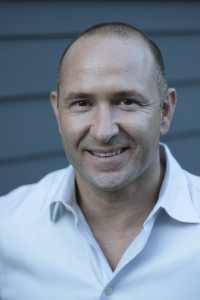If there’s one act of tikkun olam to which David Katz is dedicated, it’s an effort to clean up the oceans and waterways of the world by recycling and reprocessing plastic waste.
The 45-year-old Port Moody, B.C.-based founder of the Plastic Bank recently returned from Greece, where he was awarded the Global Citizen of the Year Award from the Entrepreneurs Organization. The honor recognizes an entrepreneur who is making a mark on the global landscape, impacting communities, inspiring support and effecting positive change.

Katz’s approach to the clean up of plastic at the world’s shorelines is innovative and, if it succeeds, its potential is huge. The idea is that waste-pickers in the most poverty-stricken countries will collect the plastic garbage and deliver it to reprocessing facilities where they’ll receive a credit at the Plastic Bank. They can then use the credit towards education, loans and access to 3-D print shops, where the plastic can be transformed into tools, parts and household items.
Katz is engaged in a pilot project with Ciuda Saludable in Peru, an organization that works with communities to increase the volume of plastics collected. He’s in partnership talks with similar organizations in Columbia and has had partnership requests from organizations in 40 different countries to date.
Back at home, he worked with the University of British Columbia to develop an extruder, which creates recycled plastic 3-D printing filament, and he’s working with a local plastic reprocessor to create Social Plastic, a brand of recycled plastic. Katz hopes to convince companies to purchase it as a socially responsible alternative to creating new plastics.
“There’s enough plastic in the world right now that we would never have to make more of it,” he explained. “And once it’s reprocessed, the plastic doesn’t degrade, which means it can be used for a wide variety of purposes and continue to be upcycled. It could be turned into fibre for clothing, or into prosthetics.”
Lush Cosmetics is one of the companies that has shown an interest in using Social Plastic in their cosmetics tubs and, at the time of publication, Katz was awaiting the final paperwork on Lush’s participation. Convincing companies to come on board with the concept of Social Plastic may be challenging, though. “Potential customers are concerned that once they start using Social Plastic, they’ll always have to use it,” he said.
Katz said he’s always been drawn to the shore, and with that attraction has come an exposure to its continuous degradation. “It’s a symbol of the global catastrophe occurring because of people’s misunderstanding of environmental issues,” he said. “We’re hoping that by turning plastic waste into a currency that can be exchanged, we can help lift people out of poverty and transition them into a self-sustaining life of entrepreneurship.”
Lauren Kramer, an award-winning writer and editor, lives in Richmond, B.C. To read her work online, visit laurenkramer.net.
